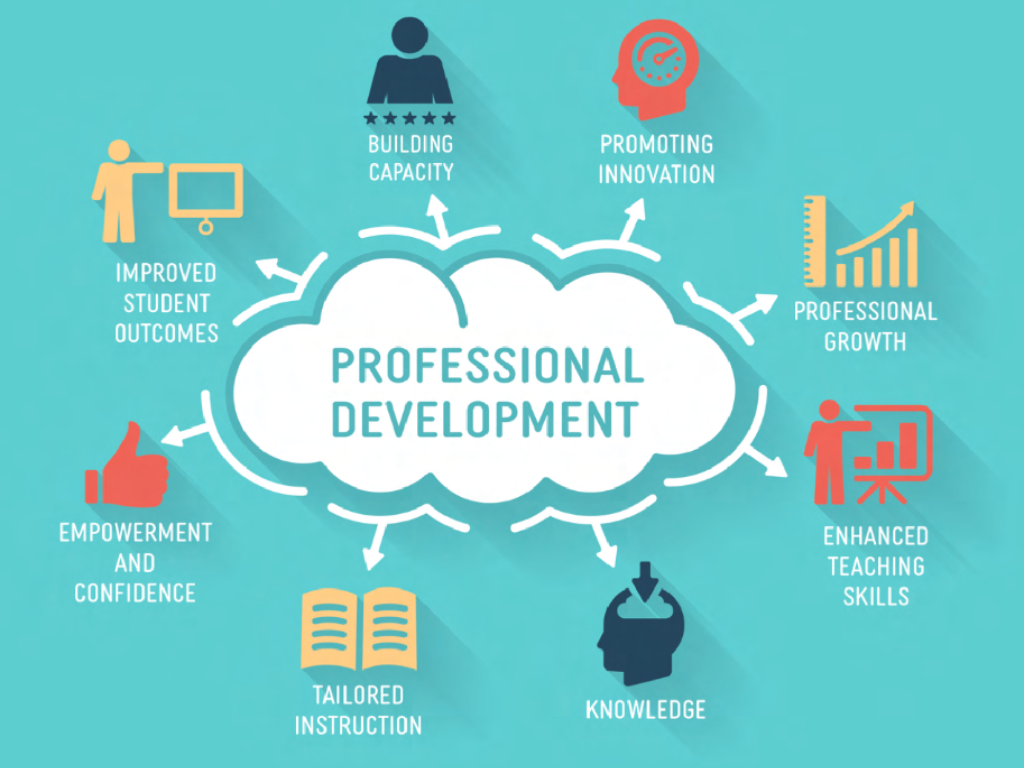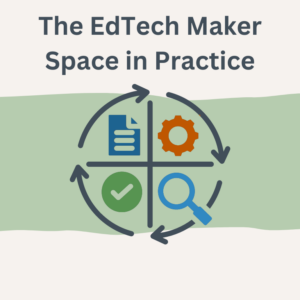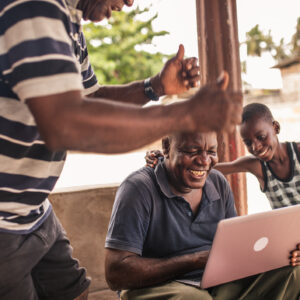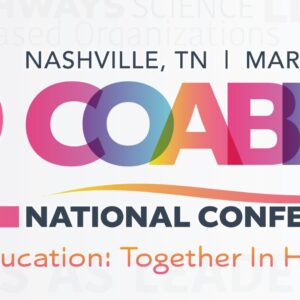
By The TSTM~SkillBlox World Education Research Team
Thankfully, at the onset of the pandemic there was ample PD available, but much of it was developed quickly and offered as one-shot webinars and conferences (Belzer et al., 2022). While such PD was useful for introducing teachers to new ideas, technologies, and content, short-term learning events do not generally align with PD that leads to long-term meaningful shifts in instructional practice (Darling-Hammond, et al., 2017). (Vanek, et al, 2023)
This observation, at the beginning of our recently published article in the COABE Journal: Resource for Adult Education, captures why at World Education, whenever possible, we strive to provide professional development (PD) offerings that a) are shaped by a range of engagement opportunities, b) extend over time, and c) include relevant tasks that are easily integrated into the work that teachers do. These aims are the heart of why we created the Edtech Maker Space (ETMS), an innovative approach to service learning.
The ETMS Approach to Service Learning
Service learning combines community service with opportunities for professional learning. An ETMS accomplishes this by first building teachers’ skills and knowledge to find and evaluate OER and to use new edtech tools (e.g., Wakelet, Google Forms) to create or adapt resources, then tasking participant teachers to curate and create free and open education resources (OER) to share with other teachers. As they learn and immediately apply new skills in OER generation, teachers are given numerous opportunities to collaborate and learn from each other through lively and innovative PD sessions.
The ETMS Approach to Professional Development
As described in our article, “Service Learning: Using a ‘Maker Space’ to Build Teachers’ Digital Skills and Expand Access to Digital Resources”, ETMSs are extended blended learning events led by edtech and adult education subject matter experts who facilitate both synchronous meetings and online work during a five to six week professional development experience. The article provides detailed descriptions of our approach, starting with our first ETMS where we helped teachers design activities using Quizlet, Google Forms, and Wakelet to provide supplemental digital activities for the leveled readings on the Reading Skills for Today’s Adults website. We have since led several ETMSs funded by the US Department of Education to support teacher learning and resource curation and creation through our Digital Resilience in the American Workforce (DRAW) and Teaching Skills that Matter-SkillBlox initiatives.
The ETMS Impact on Adult Educators and Learners
To provide evidence of engagement, completion, and quality of work we offer badges and certificates of completion. This helps draw both repeat participants and newcomers, all enrolled to deepen their knowledge of the focal topics and support other educators in collaborative resource development. Since our first maker space in Summer 2020, over 250 teachers have helped to generate over 3,500 OER, resulting in newly repackaged libraries of resources such as the Marshall Leveled Reading Program, the Digital Skills Library, the Digital Skills Glossary, and the Financial Literacy Resource Bank.
I’m very excited to participate in future Maker Space projects! The time I spent creating materials for the Maker Space was well worth it considering the time I will SAVE in the future because I have (a) the knowledge to use the edtech tools effectively and (b) access to the amazing content for my classes.
ETMSs are productive and engaging because their format is based on a strong theoretical foundation of situated learning philosophy, which holds that learning should be experiential, based on problem-solving, and structured in a way that fosters a collaborative community strengthened by expert mentoring. Furthermore, ETMSs align with the principles of quality PD described by Darling-Hammond et al, (2017):
- Content focused
- Incorporates active learning
- Supports work-related collaboration
- Models effective practice
- Provides mentoring from experts
- Gives time for feedback and reflection
- Extended over time
Check out our article, “Service Learning: Using a ‘Maker Space’ to Build Teachers’ Digital Skills and Expand Access to Digital Resources,” for more information about the theoretical foundation of the EdTech Maker Space, the challenges that inspired us to create this PD model, examples of past and current work, and access to resources created through them, including this guide to leading your own ETMS. The need for high-quality digital resources is great – our ETMS collaborative service-learning model and the resulting resources can help fill this gap. Check out the article, today!
References
Darling-Hammond, L., Hyler, M., & Gardner, M. (2017). Effective teacher professional development. Learning Policy Institute. https://learningpolicyinstitute.org/product/teacher-prof-dev
Vanek, J., Maddrell, J., Goumas, J., and Riggs., R. (2023). Service learning: Using a “maker space” to build teachers’ digital skills and expand access to digital resources. COABE Journal: Resource for Adult Education. Vol. 12. Issue 2. https://coabe.org/coabe-journal/current-issue/



